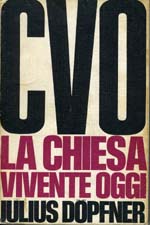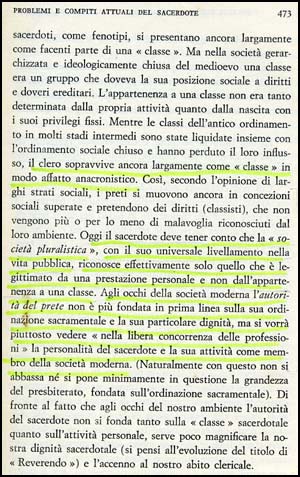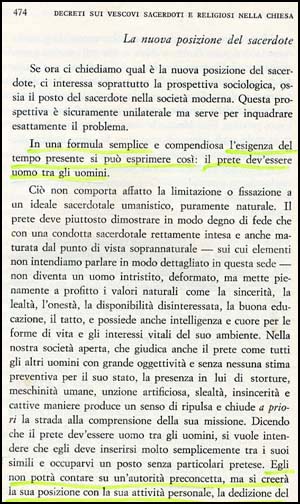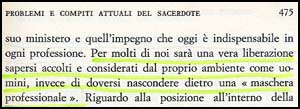Cardinal Julius Dopfner was one of the four Moderators who directed the meetings of Bishops during Vatican II. He was one of the leaders of the progressivist wing, and also one of the favorite Prelates of Paul VI.
His book The Living Church Today is a collection of speeches and lectures he gave after the Council, explaining it to many different audiences.
In the document below, Dopfner explains the new look of the mission of priests after the Council.
At right is the front cover of La Chiesa vivente oggi; at right below, photocopies of the Italian text. Below, we present our translation of the lines highlighted in yellow.
The ways of priestly life are so greatly marked by a conscience of class that it is no longer in harmony with the social evolution of the present day world. Instead, it has become obsolete. ....
The clergy still largely survive as a 'class' in an extremely anachronistic way.
Today the priest must take into account that our 'pluralist society,' with its universal leveling of public life, in point of fact only recognizes as legitimate one who offers personal services, and not one who belongs to a class. According to the thinking of modern society, priestly authority is no longer founded first and foremost on sacramental ordination and its special dignity. Instead, people want to see the priest's personality as part of the 'open market of professions,' and his activity as a member of modern society. ....
In simple, concise words, the demands of present time could be expressed in this way: the priest must be a man among men. ....
He cannot rely upon a pre-acquired authority, but he should establish his position by means of his personal activity, dedication to ministry, and personal effort, indispensable today in any profession.
For many of us, it will be a true liberation to know that we are accepted and considered in our milieus as men, rather than have to hide behind a 'professional mask.'
(Julius Doepfner, La Chiesa Vivente Oggi, Bari: Paoline, 1972, pp. 472-475).
|




 |
